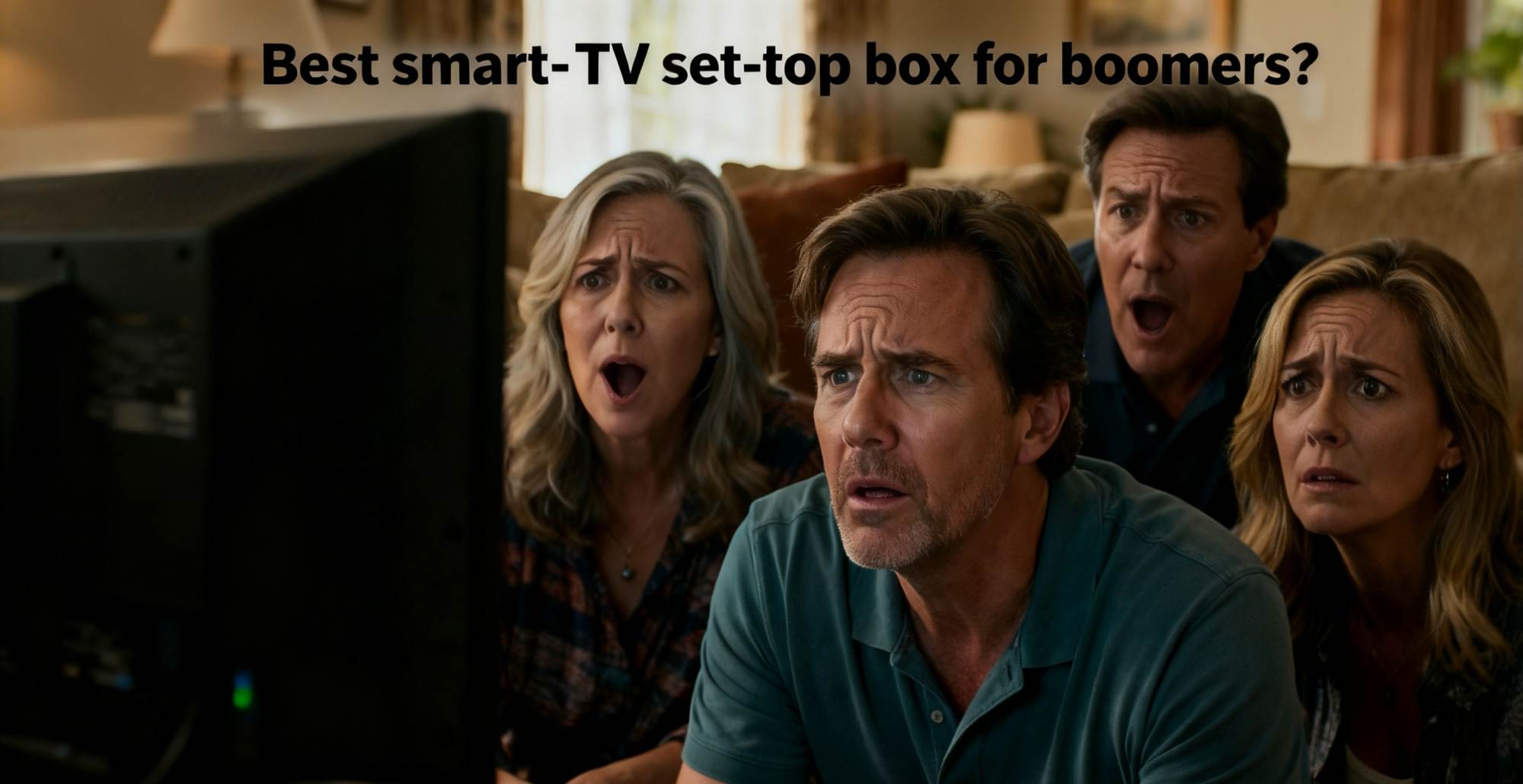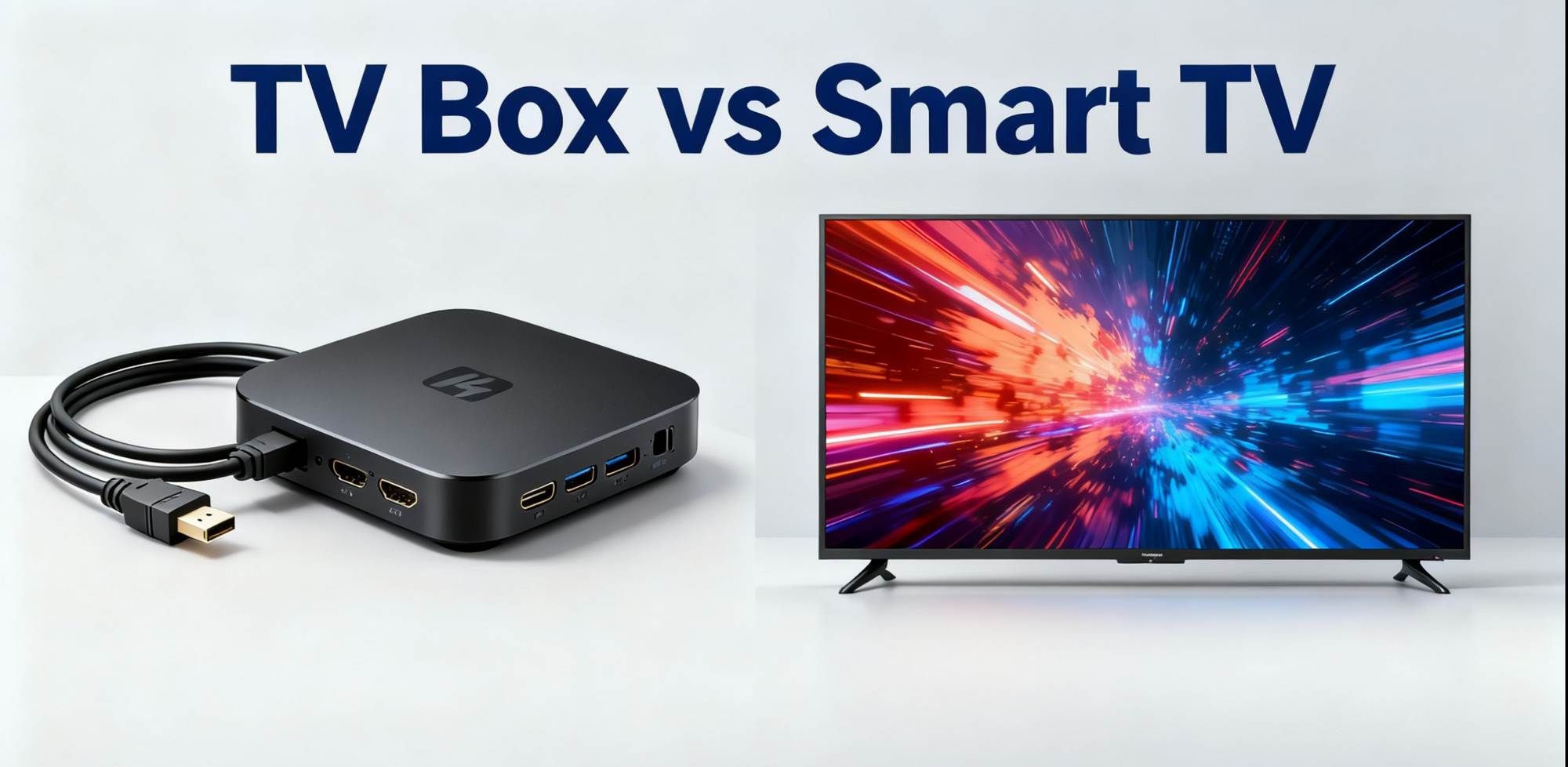In the era of smart home entertainment, televisions have long ceased to be mere devices for watching broadcast TV programs. They have evolved into core hubs connecting streaming services, games, social media, and smart home controls. At the heart of this transformation lies the Smart TV Operating System (Smart TV OS). As the software foundation, it directly determines a TV's user experience, functional richness, and versatility. But what exactly constitutes the best smart TV OS? Is it the number of apps, the smoothness of navigation, or the ability to interact with other devices? This article will delve into the core evaluation criteria for top-tier smart TV operating systems and explore several mainstream products on the current market.
content
Evaluation Criteria for the Best Smart TV OS
1. Intuitive and Smooth User Interface (UI)
2. Robust App Ecosystem
3. Cross-Device Connectivity
4. Regular Software Updates and Long-Term Technical Support
5. Gaming Compatibility
Mainstream Smart TV Operating Systems
1. Android TV/Google TV
2. webOS: LG's "Minimalist Model"
3. Tizen (Samsung)
How to Choose the "Best" OS That Suits You?
Future Trends of Smart TV Operating Systems
Evaluation Criteria for the Best Smart TV OS
The "best" smart TV OS is not a one-size-fits-all title; it needs to align with user needs. Whether you're a casual streaming viewer, a gamer, a tech enthusiast, or a family user seeking simple operation, your requirements will differ. However, there are universal standards that distinguish excellent systems from mediocre ones.Click to learn about "How to Choose a TV Box"
1. Intuitive and Smooth User Interface (UI)
An excellent user interface should be easy to operate with a low learning curve: it should be concise without redundancy, placing frequently used apps and content in prominent positions, and responding instantly to remote control commands—without lag or stuttering. For example, a well-designed OS allows users to switch between streaming apps, live TV, and game consoles with just a few clicks, eliminating the need to navigate through layers of menus repeatedly. Accessibility is also crucial: features such as voice control, large font display, and support for assistive technologies ensure the OS caters to a broader user base.
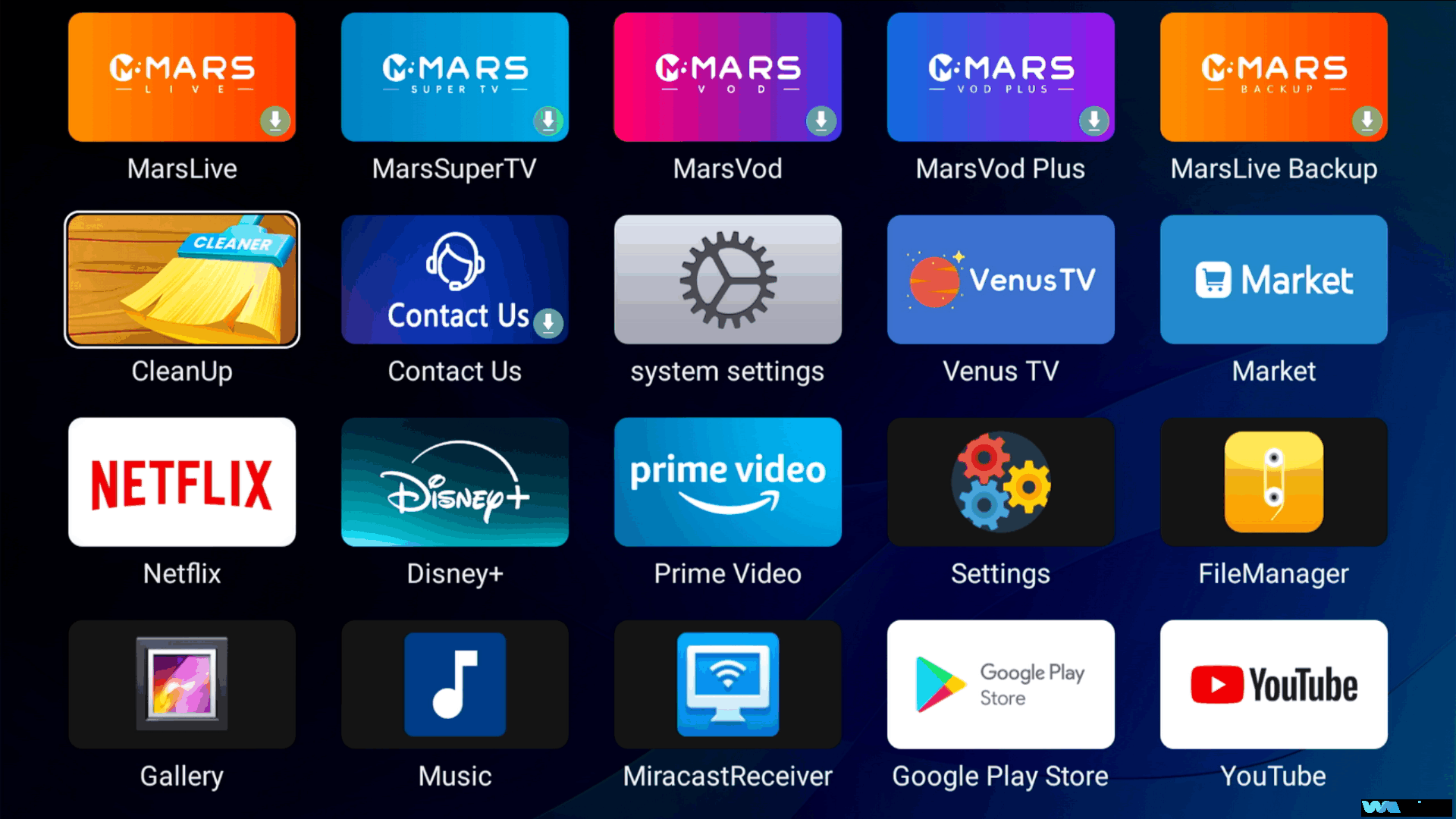
2. Robust App Ecosystem
Content is king, and the best smart TV OS must offer a vast library of apps. This includes major streaming services (Netflix, Amazon Prime Video, Disney+, Hulu), live TV platforms (Sling TV, YouTube TV), gaming applications (Xbox Cloud Gaming, NVIDIA GeForce NOW), and various niche services (fitness, education, or international content apps). A top-tier OS also ensures regular app updates to adapt to the latest TV hardware and software features.

3. Cross-Device Connectivity
In today's smart home environment, the best smart TV OS is by no means isolated. It needs to seamlessly sync with smartphones, tablets, laptops, and smart home devices (smart speakers, smart lights, thermostats, etc.). Features like screen casting (Google Cast, Apple AirPlay), screen mirroring, and universal search (which aggregates results from streaming apps, live TV, and even mobile devices) significantly enhance the user experience. For instance, users should be able to start watching a movie on their phone and seamlessly continue on the TV, or control the TV's volume and playback via a smart speaker.
4. Regular Software Updates and Long-Term Technical Support
Technology evolves at a rapid pace, and a smart TV OS that becomes obsolete after just one year is not worth investing in. The best OS continuously delivers new features, security patches, and performance optimizations through regular software updates. Manufacturers that commit to long-term support (3 years or more) ensure users' TV devices maintain a good experience throughout a longer lifecycle, which is also a key indicator of an OS's quality.
5. Gaming Compatibility
With the rise of cloud gaming and casual TV gaming, the best smart TV OS must cater to gamers' needs. This means the system should support low-latency gaming modes, be compatible with wireless controllers (PlayStation controllers, Xbox controllers, Bluetooth controllers, etc.), and integrate with various gaming services. Some OS even come with built-in gaming features, such as pre-installed casual games or deep integration with cloud gaming platforms, allowing users to play AAA titles without a dedicated game console.

Mainstream Smart TV Operating Systems
Based on the above evaluation criteria, several mainstream smart TV OS on the market each have their own strengths, catering to the core needs of different user groups and standing out as candidates for the "best."
1. Android TV/Google TV
Developed by Google, Android TV (later upgraded to Google TV, with an interface focusing more on content aggregation) leverages the natural advantages of the Android ecosystem to become the top choice for major TV brands worldwide. Its core strength lies in its vast app ecosystem—the Google Play Store for TV hosts thousands of TV-optimized apps, ranging from major streaming platforms to niche utility apps, with excellent compatibility for cloud gaming services like Xbox Cloud Gaming.
In terms of cross-device connectivity, it is fully compatible with Google ecosystem devices, supporting Chromecast screen casting and Google Assistant voice control, enabling seamless collaboration with Android phones and smart speakers. The Google TV version further introduces intelligent content recommendations, which aggregate content from different platforms based on user viewing habits, reducing the need to switch between apps. However, it has obvious shortcomings: some non-natively optimized apps may have screen stretching issues, and Google services require special access in the Chinese market. As a result, domestic brands usually develop customized systems based on native Android (such as Xiaomi's MIUI for TV and TCL Thunderbird's FengOS).
Suitable for: Users seeking a rich app library, frequent users of Google ecosystem devices, or consumers of international content.
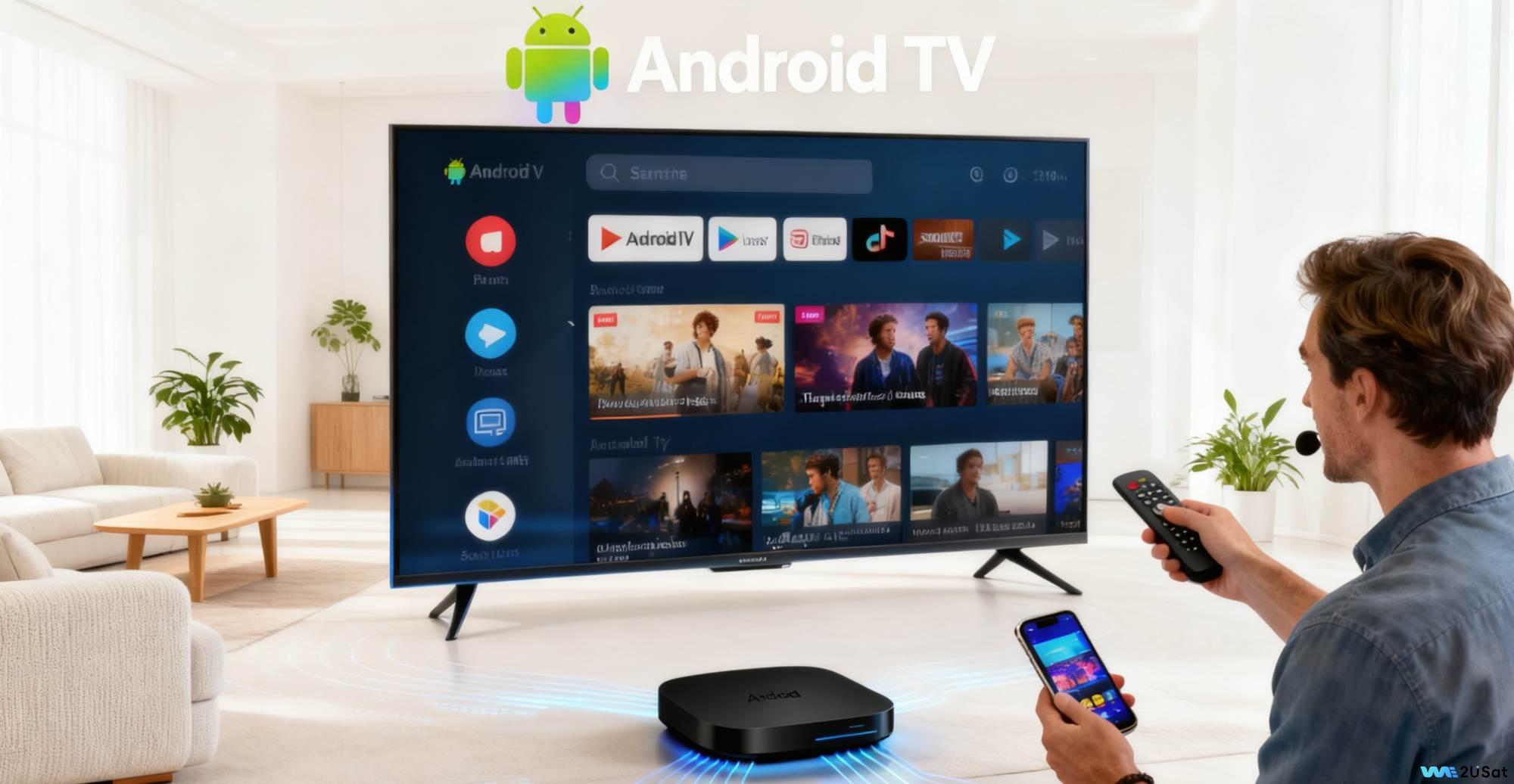
2. webOS: LG's "Minimalist Model"
Originally developed by Palm and later acquired and revamped by LG as a smart TV OS, webOS is renowned for its "minimalist operation." Its iconic "bottom app bar" allows users to access frequently used apps at any time without exiting the current playback interface, ensuring high operational efficiency. The system's built-in "Magic Remote" supports voice control and gesture operations, further lowering the usability threshold.
In terms of content integration, webOS can aggregate content from major streaming platforms and live TV, providing unified search results. Additionally, it excels at multitasking, allowing multiple apps to run simultaneously with quick switching. However, limited by its ecosystem scale, some niche apps are unavailable, and cross-device connectivity only supports LG's own products and a few third-party smart home devices.
Suitable for: LG TV buyers, users seeking minimalist operation and multitasking capabilities.
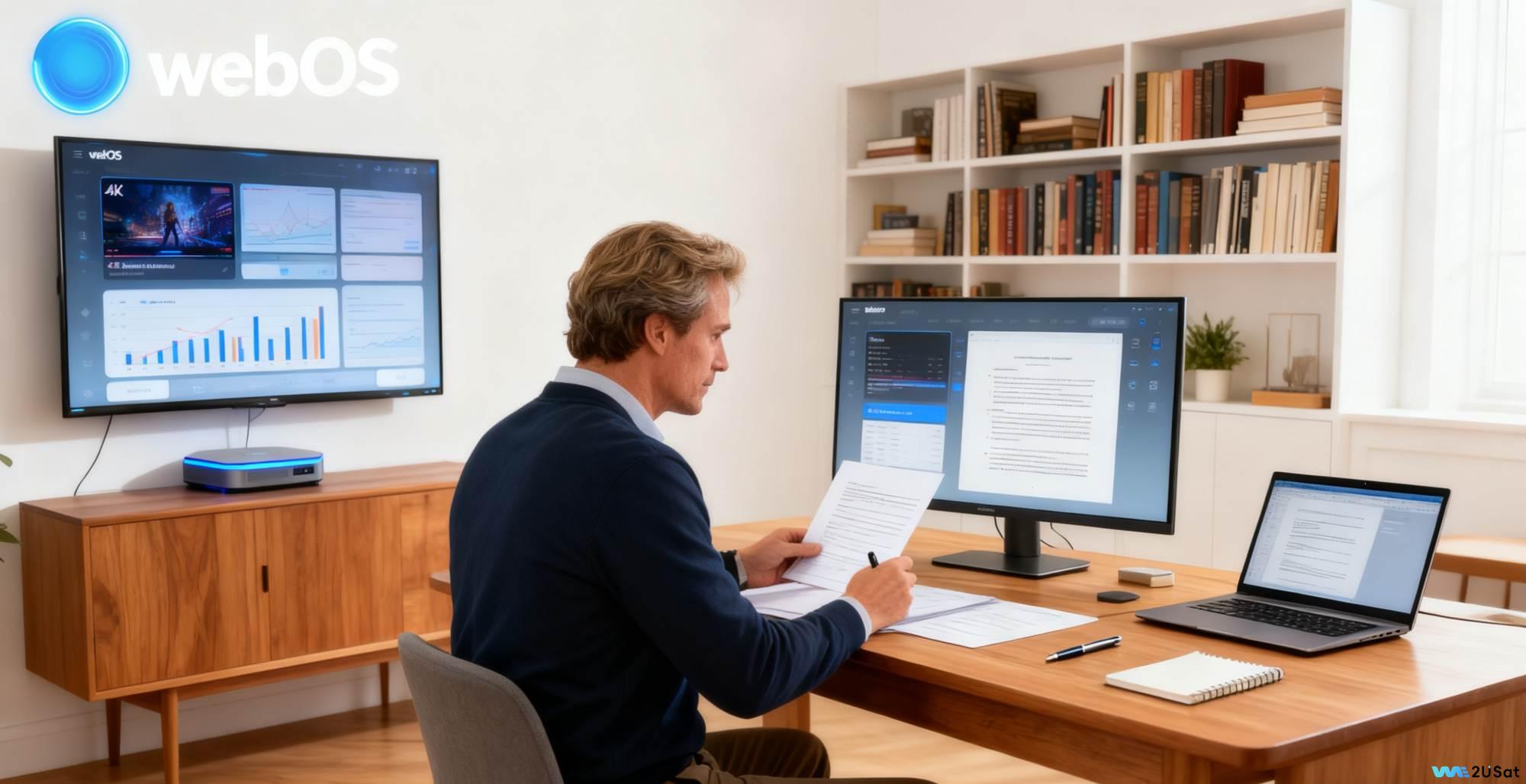
3. Tizen (Samsung)
As Samsung TV's exclusive operating system, Tizen OS has long been synonymous with smoothness and stability, thanks to its deep hardware optimization. Its lightweight architecture ensures lag-free operation even on mid-to-low-end TV hardware, with menu switching and app launch speeds far exceeding most competitors.
In terms of functional design, Tizen OS simplifies the operating logic, with a horizontal card-based layout on the home screen displaying frequently used content and apps, making it easy for the elderly and children to master. It also supports Samsung's own SmartThings smart home platform, enabling direct control of Samsung smart lights, refrigerators, and other devices for a consistent cross-device experience. However, its downside is a relatively closed app ecosystem—while it covers major streaming apps, the number of niche apps is limited.
Suitable for: Samsung TV buyers, family users seeking simple and smooth operation, or users of the Samsung smart home ecosystem.

How to Choose the "Best" OS That Suits You?
As mentioned earlier, there is no absolute "best"—only "most suitable." Choosing an OS based on your own needs is the key to maximizing the value of your smart TV.
Regardless of which OS you choose, it is essential to confirm the manufacturer's software update commitment before purchasing. This prevents situations where streaming apps are updated but the TV or TV box fails to receive updates, resulting in inability to play or use the apps.

Future Trends of Smart TV Operating Systems
With the development of artificial intelligence and the Internet of Things (IoT), the future "best smart TV OS" will evolve in three directions: First, smarter personalized recommendations—using AI algorithms to accurately identify user preferences and deliver "tailored" content. Second, deeper full-scenario connectivity—TVs will become the control center of smart homes, enabling seamless collaboration with security systems, lighting, and home appliances. Third, more immersive interaction—integrating multi-modal interaction technologies such as voice, gestures, and eye tracking to further lower the usability threshold.
Let's look forward to it together!

